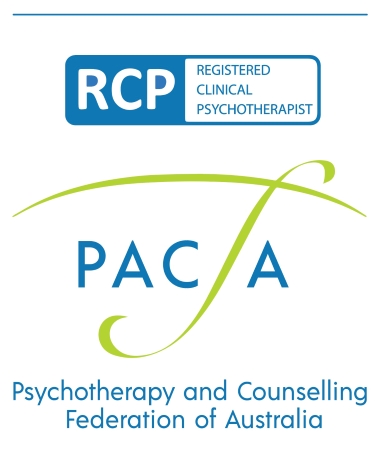Photo Credit: @gilberfranco / Unsplash
One of the most important components of successful psychotherapeutic counselling or psychotherapy is the ‘weekly therapy session’. When considering therapy, clients might be wondering why this is so essential.
I recently interviewed counsellors and psychotherapists from around the globe to get their perspective on why they recommend weekly therapy:
Sheryl Woodhouse. LMFT
Sheryl helps people tackle tough problems involving communication, marriage/partner conflict, problem solving, grief and loss due to death or divorce, many forms of addiction and relationship problems and the effects of abuse. She practices in Laguna Hills, California, United States.
When someone wants to progress in something that is new to them, for example, a sport, exercise or vocal training – consistent practice is imperative to recall new information and to ingrain the information given to them. The initial phases of therapy are no different. The old adage – use it or lose it – is true in psychotherapy. Having consistent weekly therapy sessions helps keep the process moving and also allows the therapist to follow up with assignments given to the client to reinforce that which was discussed in the session.
Emma Cameron. UKCP. Integrative Arts Psychotherapist
Emma specializes in working with thoughtful, sensitive women in Colchester, UK, and online.
One reason why attending therapy weekly, as opposed to less often, is beneficial is because it helps make the work more ‘holding’. If you don’t feel ‘held’ in therapy you aren’t going to be able to build the kind of trusting and healing relationship which helps rewire your nervous system.
Therapeutic holding isn’t about touch or physical holding – instead, it’s about emotional safety. Emotional safety comes from many aspects of therapy, but having a regular, reliable session that you go to every week is one of the basics. Going less frequently can really interfere with developing emotional safety.
When you, the client, feel held and emotionally safe enough to connect to your inner self, in the context of your relationship with your therapist, then change, growth and healing can really start to happen.
Toni Jackson. Psychotherapist
Toni works with trauma, body image and eating disorders in Perth, Western Australia.
Weekly sessions require a commitment to self – a prioritising of one’s inner growth and wellbeing.
In weekly therapy, my client and I co-create a space that then stretches between sessions. When we meet, the thread is still there from last time. This makes it easier for my client to access that soft, vulnerable part of herself quite quickly – meaning she is able to work on a deeper level.
With less frequent therapy sessions, clients tend to close off from that tender place in themselves – they put up their defences in order to interact safely with the world. It may then take most of the session for them to feel safe enough to allow themselves to soften and risk exposing their vulnerability. Then the session is over and they are gone, until we repeat the whole process of opening again next time.
Renee Outland. OTD. OTR/L. Psychiatric Occupational Therapist
Renee provides experiential therapy for men and women of all ages, and specializes in eating disorders, trauma, and parenting/care-giving. She offers home, office, and community-based sessions in Cambridge, Massachusetts, United States.
Based on my training and my experience as both client and therapist, I view the therapeutic relationship as the catalyst through which the work of healing, growth, and change takes place. Having regular weekly sessions, helps to build and strengthen that relationship, which in turn improves the quality of the therapeutic process. When a client and therapist can consistently build a framework of safety and trust, a space is created for the vulnerability involved in making deep, lasting change.
In addition to the relationship itself, regular weekly sessions are key to maintaining the momentum of – and gaining the most value from – the therapeutic process. Change of any kind involves small steps, trial and error, and continuous feedback and adjustments as both client and therapist learn about what works, what doesn’t, where attention is needed, and much more. When extended periods of time go by between sessions, some of the richness of the experiences involved in that process can fade, making it more difficult to bring those experiences into the room. In contrast, meeting at least weekly can help preserve the vividness of those experiences, which fosters more engagement in each session, carry-over from the session to daily life, and ultimately a greater benefit from the therapeutic process.
Rebecca Newkirk. LCSW
Rebecca connects with young people to overcome trauma, perfectionism, and shame. She practices online and in New Mexico and Virginia, United States.
Weekly therapy sessions have a couple purposes in my opinion. We are finding that regardless of the modalities that the therapist uses, the biggest predictor of change is the relationship the client has with the therapist. This means that feeling safe, feeling heard, and having someone witness your pain, trials, and growth, is a better predictor of growth in therapy than techniques used (even though there are some pretty cool techniques). I find that when clients start their therapeutic process with me with less frequency than one hour per week, we spend a lot more session time re-building comfort and re-building rapport. It feels like not only are we seeing each other less often, but we are using less of the time allotted to do work, which just slows down the process unnecessarily.
I like to think of therapy that works well as a long, on-going conversation. Basically, aside from check ins and identifying what might have happened in the interim that requires some attention, we are addressing the same issues that plague the client and how it manifests in their lives. This feels a lot more coherent to me in a week to week format. I’ve noticed that clients who come less frequently than one time per week have a harder time keeping the therapeutic goals in mind and therefore spend more time in session having to re-orient. This, again, means that less session time is used to make forward progress, and instead we are using time re-identifying the same goals or re-recognizing how these things are affecting day to day functioning.
Cindy Blank-Edelman. LMHC. Psychotherapist
Cindy works with trauma survivors; body liberation; gender, relationship and sexual minorities in Cambridge Massachusetts, United States.
Meeting weekly enables more rapid building of trust and rapport.
It is difficult to open yourself up to a therapist, to be vulnerable with someone you do not know and you don’t trust yet. The quicker that trust and connection can be established, the sooner you can get to the heart of the challenges you want to address in therapy.
Weekly therapy also allows for more continuity so there is no need for lengthy reporting on events between therapy sessions. When I meet with clients less frequently than every week, a significant amount of the therapy session needs to be devoted to “catching up” and telling stories of what happened over the week. Therefore, less time is available to focus on the here and now and to go into depth on the issues you are talking about.
Meeting with your therapist every week also assures that therapy is available to you on a regular basis. It allows you to set aside your distress during the rest of the week, knowing that you have therapy coming up soon and you can talk about it then and get support. It is comforting to know that you have that weekly support. In addition, because cancellations happen for a variety of reasons, it is more difficult to maintain frequent contact with your therapist if you meet less than weekly. For example, if you are scheduled to meet every other week and you get sick on the day of your session and cannot meet, you may have to wait another two weeks until your next regularly scheduled session. So clients end up getting monthly therapy, which is usually inadequate to make real progress or to provide adequate support.
Alicia Hite. M.S. LMFT
Alicia Hite is the founder and owner of Springs Psychotherapy Inc. She specializes in childhood trauma recovery and assisting couples with betrayal recovery and conflict resolution in Colorado Springs, Colorado, United States.
“Are you sure your clock is working because there’s no way it’s already been 50 minutes.”
Most individuals who have been to therapy can relate to this statement. As cliché as it sounds, attending therapy is like unlocking the emotional floodgates. Everything that has been forced into hiding is begging to come forward and be seen. The deep work that occurs in psychotherapy can leave one feeling so consumed with emotion and insight that they are completely unaware of anything else. While many expect this heightened state of emotions to dissipate once the weekly therapy session is over, it is not uncommon for it to begin creeping into the other six days of the week. Those that have had the less than ideal experience of bursting into tears in the middle of Starbucks can attest to this.
One of the amazing aspects of our psyche is that it is continuously processing and attempting to reintegrate new experiences. This is very useful for those that attend weekly psychotherapy sessions as it frequently allows individuals to continue to explore their feelings and develop new insights in between weekly sessions. However, without the security and safety of having a place to share these new insights and continue to further process painful emotions, many individuals become completely overwhelmed by their feelings. It is as if these feelings have no idea when we will acknowledge them so they take on a life of themselves and attempt to get our attention as much as possible. Weekly psychotherapy sessions lessen those feelings as they gently remind our psyche that it is guaranteed time and space to completely let go and be seen by both ourselves and another trusted individual. Lastly, attending weekly psychotherapy sessions reminds ourselves that we are a priority and need to regularly be attended to. What an amazing act of self-love!
Kameela Osman. M.S.W. R.S.W. Clinical Social Worker / Psychotherapist
Kameela is the Founder of Elite Counselling & Consulting Services and specializes in brief therapy, collaborating for practical solutions to life issues, such as anxiety, depression, relationship issues and more. She works online in Ontario, Canada and in person in Bowmanville, Ontario, Canada.
Consistent supported shifts, can equal lasting change.
Most of us seeking therapy are looking to make changes of some sort in our life. We may know what those changes are or we may just know we want a different reality. A better relationship, less anxiety, more fulfilment, peace with the past, whatever it may be that motivates us to seek therapy, it’s usually done in pursuit of altering our current life. Making lasting change is not just about choosing to change. Habits, our behaviours, inclinations, reactions, and ways of thinking are hardwired in our brains. Making a change that lasts, takes repetition. Therefore, most therapists will see clients weekly, especially to start.
Realizing what needs to shift and beginning to make changes can be a process of trial and error. Support from a therapist with a combination of professional and in the field knowledge, can be insider insight to fast track success. As a personal trainer can help support with shifting to better physical health, a therapist can help with our mental, emotional wellbeing. In the beginning our bodies and our mind want to revert to its norm, it pulls us into old patterns of being. Too much time in-between sessions can create space for us to fall back into old habits. A guide that can consistently be there until the new patterns are found and repeated enhances chances that desired change will not only happen but last.
Jennifer Brady. Licensed Clinical Professional Counselor
Jennifer works with women from young adulthood to middle age in Severna Park, Maryland, United States. Her passion is helping women find themselves and giving them a voice in this noisy world.
I recommend that clients come weekly at the beginning of treatment for a few different reasons:
Relationship: To me, relationship is the most important piece of meaningful and effective therapy and it is hard to achieve a good and trusting relationship when only being seen biweekly or monthly at the very start. I like to develop rapport and relationship first and then as treatment needs change, decrease the frequency as appropriate.
Going along with relationship, weekly sessions help me to get an idea of who the client is and what their goals and motivations are. Doing this helps me to guide the direction of treatment so that we can have the most productive work.
Consistency: As with any major change in life, consistency is key. When there are large gaps between sessions, it’s easy to lose sight of the goal and slack on the work that needs to be done. Being held accountable weekly, helps clients to achieve their goals in a quicker, more effective manner.
Jodie Gale. Soul-Centred Psychotherapist, Counsellor + Eating Disorder Specialist
Jodie works with women in private practice in Manly, Frenchs Forest + Allambie on the Northern Beaches of Sydney.
Most people initially come to therapy seeking relief from their pain and the symptoms they are experiencing. It doesn’t take long to discover that underlying the presenting issue, is often a history of childhood emotional neglect, complex trauma and narcissistic wounding.
This means that clients often show up to the therapist’s door swimming in a sea of chaos; internal and external.
It’s important to remember that people are one and many. Whilst clients may present as high functioning – adult even – there is always a younger, needy, inner child (and others!) present in the room. It’s this child that is most important in relation to why therapists hold the boundaries and frame regarding the consistency of therapy; same place, same day, same time. Therapy provides a different experience from that which was experienced in the clients’ early lives; a still point in amidst the chaos.
Whilst not the only reason, when therapists are inconsistent with session times or allowing of clients chopping and changing appointments, they may be colluding with the chaos and therapy may no longer be a safe and secure base. Clients find it hard to trust and cancellations, no shows and ghosting become the norm.
In How a Good Therapist Makes You Feel Safe, Martha Ainsworth agrees,
“From what I have seen, I believe that the secure frame is the element of therapy that is most frequently abused by poor therapists, and frame deviations are too often tolerated by unknowing clients. Consciously, you may dismiss most frame deviations as unimportant. However, your unconscious mind pretty much requires a secure frame, if your therapy is to have any lasting effect.”
But if therapy is weekly, what about dependency?
As Joseph Burgo writes,
“The concepts of neediness and emotional dependency have negative connotations in our culture; when it comes to psychotherapy, many people (especially those who’ve never had any kind of treatment) take a very dim view of clients who come to depend “too much” upon their therapist. You may hear the very cynical opinion expressed that psychotherapists deliberately instill a kind of emotional dependency in their clients in order to exploit them. It seems that a great many people think that emotional dependency in psychotherapy is bad.
In truth, for psychotherapy to be effective, a degree of emotional dependency is inevitable. Clients with extreme amounts of pain and confusion, who have a history of unstable or chaotic relationships, may become highly dependent for long periods of time. If your life isn’t working, if you come from a deeply troubled background and never developed the kind of emotional capacity and self-awareness you need to get through life, you have to turn to and depend upon someone else to help you develop it. Effective work can’t happen and you can’t get what you need if you don’t.”
Regardless of the modality, research shows that when therapists provide a safe and secure base via a compassionate and boundaried psychotherapeutic frame, clients are able to build trust, exercise self-expression and thrive emotionally. Therapists function as a healthy attachment figure and the consistency provided via the weekly therapy session and the therapeutic relationship are critical features which contribute to the success of psychotherapy.
Week in, week out, clients internalise the love and care from the therapist, they build the capacity to be with their feelings, they are able to meet their own needs and ask to get their needs met in healthy ways from others, they become less and less dependent on their therapist and they are increasingly able thrive independently outside of therapy!
National Psychotherapy Day
This blog post is for National Psychotherapy Day – September 25 (in the US). Head on over to their Facebook community: National Psychotherapy Day.













